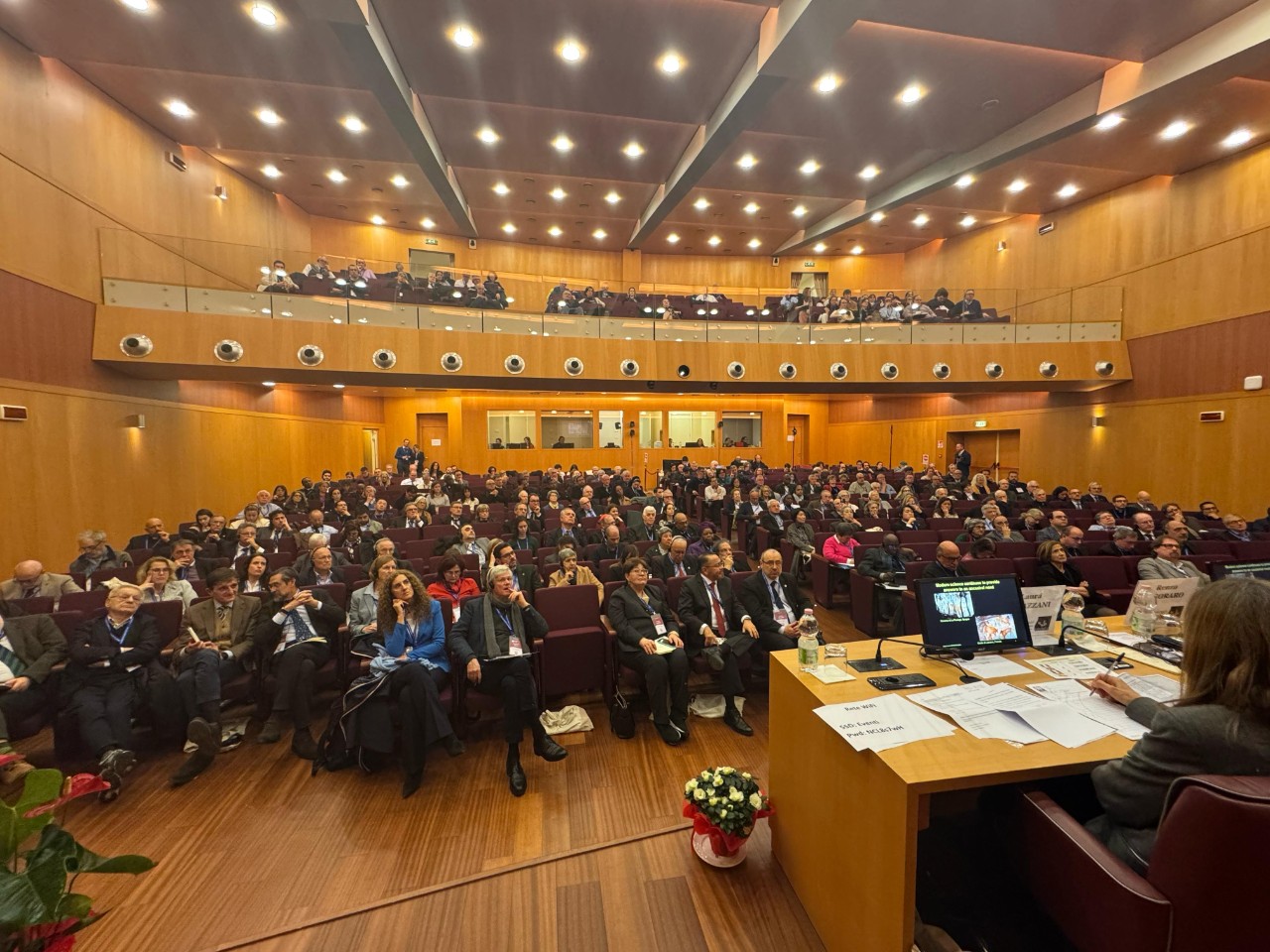During the Pontifical Academy for Life’s 30th Annual General Assembly on the theme The End of the World? Crises, Responsibilities, Hopes, a panel of scholars and Noble Laureates met to answer this question: what and who will save the world?
Katalin Karikó, the 2023 Noble Prize Laureate in Physiology or Medicine, answered this question by saying that we could save the world. In her remarks, she spoke on the issue of misinformation around science and medicine and emphasized the need for the sciences to educate the public in order to prevent the spread of this misinformation. She stressed the need to work together to achieve this goal and the need for trustworthy sources from which ordinary people would be able to learn about scientific issues. She highlighted the need for gratitude and to focus on what oneself can do so that one does not become frustrated during this struggle.
Paul Romer, the 2018 Noble Prize Laureate in Economic Sciences, began his remarks by praising the great technological progress which human beings have enjoyed in recent years. However, he pointed out that even now a great many people experience despair and a lack of purpose. This shows that while technology can give opportunities, it is still essential to have strong value systems which show people how they ought to live. He stressed the need for effective means of changing the values of citizens back to a value system where each person thinks about how his or her actions will affect others. For Romer, the fact that people participate in nonprofit organizations is critical because it helps to build these good values in society. He also reminded his audience to be patient with people as they work to change society’s values in a positive way.
Giuliano Amato, the Prime Minister of Italy from 1992 to 1993 and from 2000 to 2001, began his remarks by lamenting the fact that, in politics, the emphasis on international cooperation has largely been replaced by an emphasis on national sovereignty and on rule by the strongest. For Amato, human beings must reintegrate this idea of cooperation and look to solve future evils and not just present ones in politics. Amato also praised the work of nonprofits in Italy, which help to change the values of society in a positive way by taking care of others rather than themselves. Amato also warned of the problem of inequality, stressing the concrete impact of inequality on the lives of millions.
In answer to the question “Who can save the world?”, Manfred Lütz, a psychiatrist and member of the Academy, declared that only Christ can save the world; human beings cannot save themselves. Even so, he acknowledged that human beings must still use all of their skill in order to try to save the world. He stressed the importance of psychology in navigating a world full of autocrats and in empathizing with the suffering of the individual. According to Lütz, we must save the concept of human dignity and promote compassion. Lütz also stressed the importance of beauty, saying that art allows human beings to experience eternal life while still on earth.
Cardinal Carlos Castillo Mattasoglio, Archbishop of Lima, Peru, pointed out that the Bible features many apocalyptic crises similar to the one that human beings are experiencing now. However, in the Bible, where there is a crisis, there is always a solution as well. The Cardinal stressed the idea that the Church should not simply teach the precepts of the faith in a formulaic way but should approach evangelization as a synodal process of accompaniment. He emphasized religion’s role in shaping political consciences to promote human dignity. The Cardinal closed his remarks by saying that the most important part of one’s faith experience is the gift of beauty, and that one must remedy those things in one’s life which hinder the experience of beauty.
Transcript: first part - second part.
(Summary and Transcript by Kathleen Farnan, Notre Dame University, Rome)
The guiding image chosen for this meeting is Noah releasing the dove, Mosaic from St. Mark's Basilica (Venice, Italy).


